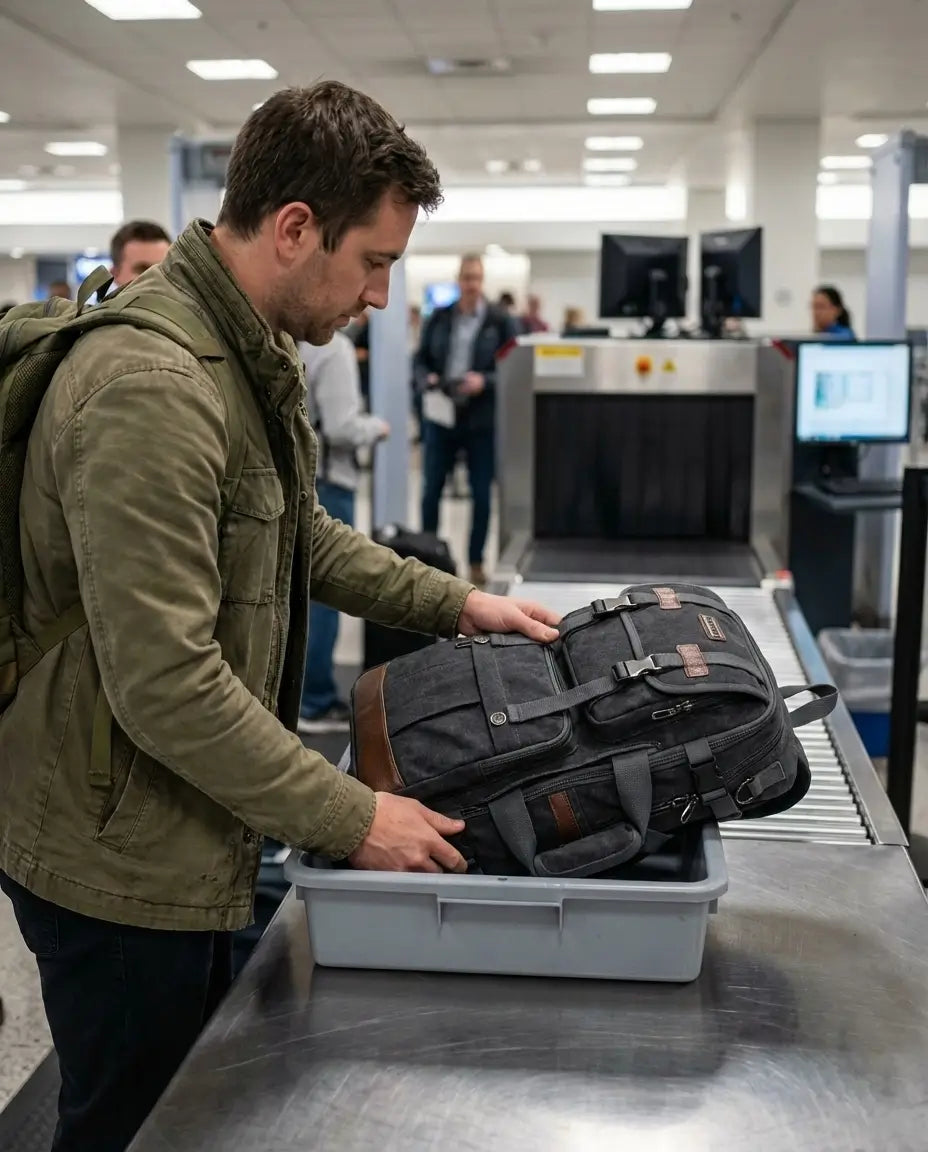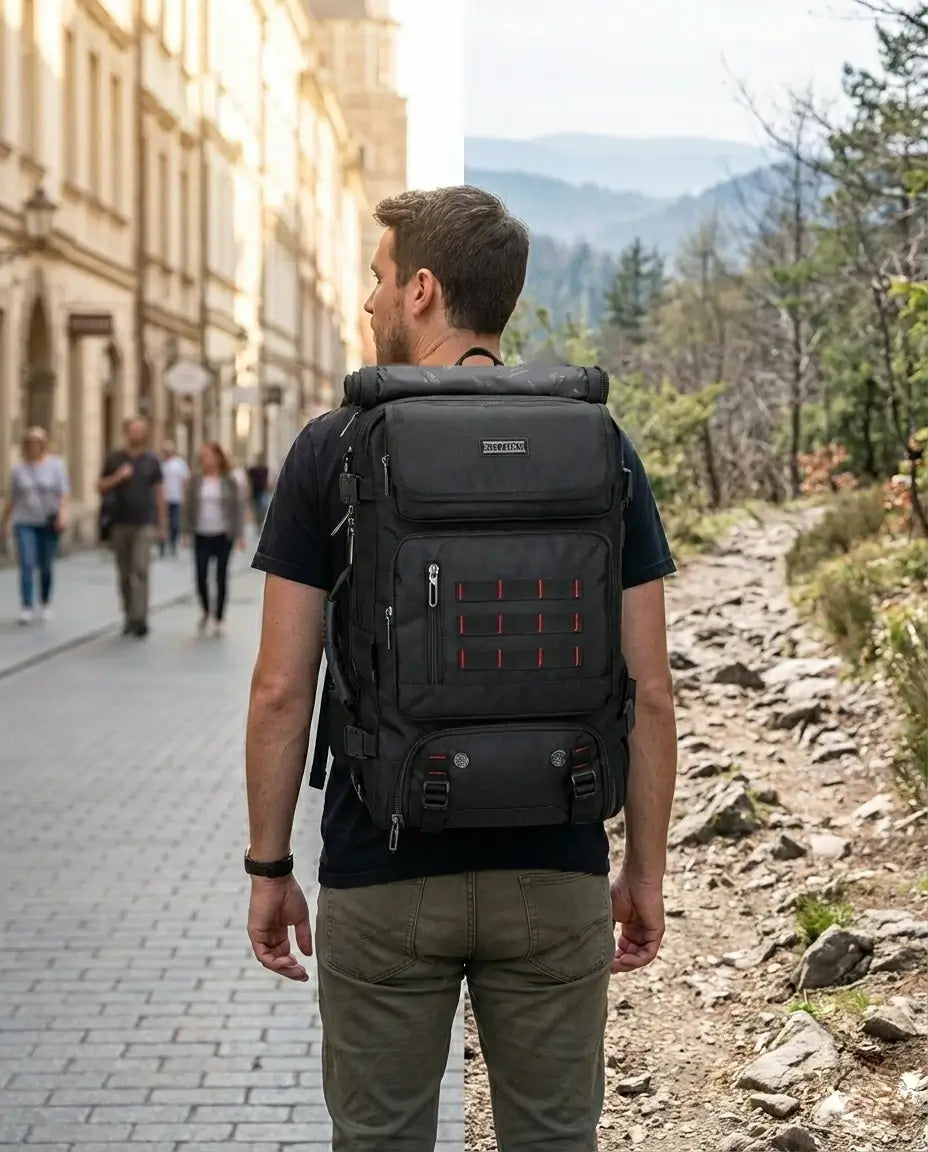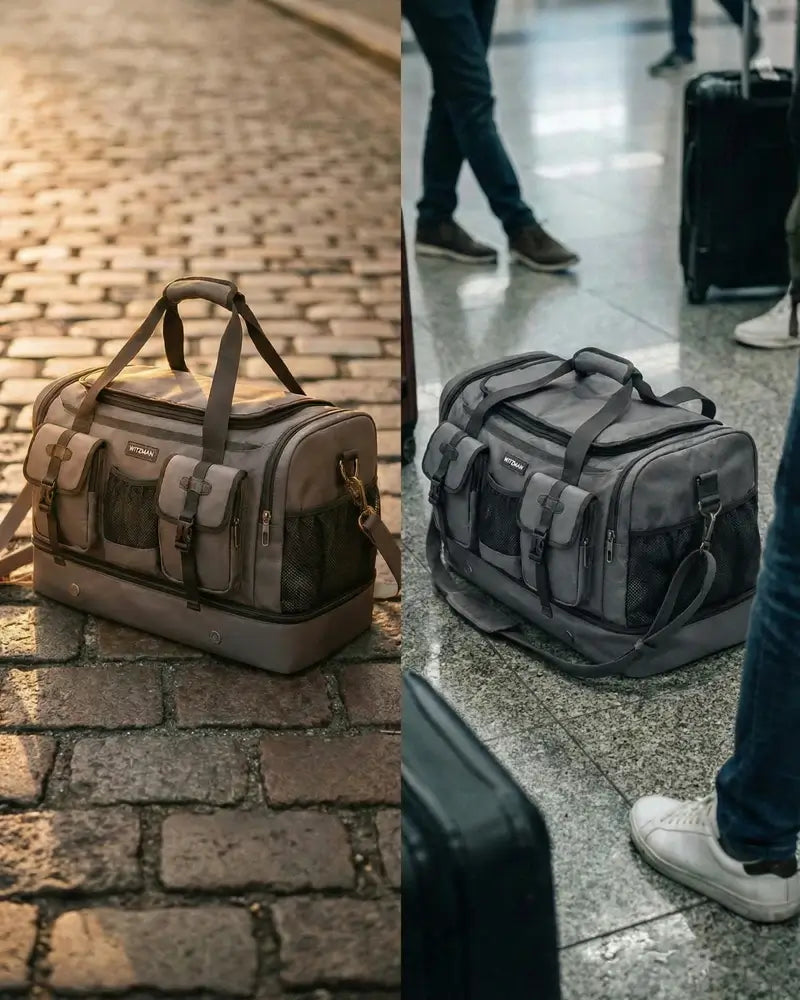Traveling can be an exhilarating experience, but it also comes with its own set of challenges, particularly when it comes to maintaining your health. Whether you're navigating airport food courts, adjusting to different time zones, or finding time for a workout, staying healthy on the road is crucial. This guide will provide you with practical nutrition and exercise tips to help you stay fit and energized during your travels.
Part 1: Nutrition Tips
1.1 Pre-Travel Preparation
Research Local Cuisine
Before you set off, take some time to research the local cuisine of your destination. Understanding the nutritional value and ingredients of local dishes can help you make healthier choices. Look for fresh, seasonal produce and lean proteins that are staples in the local diet. If you have dietary restrictions, knowing what to expect can help you plan better.

Packing Healthy Snacks
Packing your own snacks is a great way to ensure you have healthy options readily available. Opt for portable, non-perishable snacks like nuts, dried fruits, whole grain crackers, and protein bars. These snacks are not only nutritious but also easy to carry around, making them perfect for long flights or road trips.

Hydration Essentials
Staying hydrated is essential, especially when traveling. Dehydration can lead to fatigue, headaches, and other health issues. Carry a reusable water bottle and refill it regularly. Adding electrolytes to your water can help maintain hydration levels, especially in hot climates or during intense activities.
Travel Backpacks
A good travel backpack is indispensable for carrying your snacks, water, and other essentials. Choose a backpack with enough space and multiple pockets to keep everything organized. Look for features like insulated compartments for snacks and a dedicated pocket for your water bottle to keep your items easily accessible.

1.2 During Travel
Air Travel Nutrition
Airplane food often leaves much to be desired in terms of nutrition. When possible, bring your own meals or snacks. If you must eat airline food, opt for healthier options like salads, fruits, and lean proteins. Avoid sugary snacks and drinks that can cause energy crashes.
Road Trip Snacks
When hitting the road, it's tempting to rely on fast food stops. Instead, pack a cooler with healthy snacks such as yogurt, fresh fruits, vegetable sticks, and hummus. This will not only save you money but also keep you from indulging in unhealthy junk food.

Dining Out
Eating out is a big part of the travel experience, but it can be challenging to find healthy options. Look for restaurants that offer fresh, locally sourced ingredients. Choose dishes that are grilled, baked, or steamed rather than fried. Don't be afraid to ask for modifications, like dressing on the side or substituting fries for a salad.
1.3 Special Dietary Needs
Allergies and Intolerances
Managing food allergies or intolerances while traveling requires extra planning. Learn how to communicate your dietary needs in the local language and carry a card that lists your allergies in the local language. Research restaurants and local dishes that cater to your dietary requirements beforehand.
Vegan/Vegetarian Options
Finding vegan or vegetarian options can be easier than you think, especially in major cities. Many cultures have plant-based dishes that are naturally vegan or vegetarian. Apps like HappyCow can help you locate vegan and vegetarian-friendly restaurants in your destination.

Part 2: Exercise Tips
2.1 Pre-Travel Fitness
Building a Routine
Establishing a fitness routine before you travel can help you stay on track while on the road. Aim to include a mix of cardio, strength training, and flexibility exercises in your routine. This will prepare your body for the physical demands of travel and help you maintain your fitness levels.
Packing Workout Gear
Packing the right workout gear is essential. Lightweight, moisture-wicking clothes are ideal for travel. Resistance bands, a jump rope, and a yoga mat are portable options that can enhance your workouts without taking up much space in your luggage.
2.2 Staying Active on the Go
Hotel Workouts
Even if your hotel doesn't have a gym, you can still get a good workout in your room. Bodyweight exercises like push-ups, squats, and lunges are effective and require no equipment. You can also use resistance bands for added intensity.
Outdoor Activities
Exploring the outdoors is a great way to stay active while experiencing your destination. Look for opportunities to hike, swim, or take walking tours. Not only will you get your exercise in, but you'll also get to see more of the local scenery and culture.
Using Local Facilities
Many cities offer public parks, bike rentals, and community centers that you can use to stay active. Some gyms even offer day passes for travelers. Doing a bit of research beforehand can help you find the best local facilities to use during your stay.
2.3 Travel-Friendly Exercises
Bodyweight Exercises
Bodyweight exercises are perfect for travel because they require no equipment and can be done anywhere. Incorporate exercises like push-ups, squats, lunges, and planks into your routine. These exercises target multiple muscle groups and can be adjusted in intensity to match your fitness level.
Resistance Bands
Resistance bands are lightweight, portable, and versatile, making them an excellent addition to your travel workout gear. Use them for exercises like bicep curls, tricep extensions, shoulder presses, and leg lifts. Resistance bands can provide a full-body workout and help maintain muscle tone while traveling.
Quick Workouts
When time is limited, short, high-intensity workouts can be highly effective. High-Intensity Interval Training (HIIT) involves short bursts of intense exercise followed by brief periods of rest. A 20-minute HIIT session can burn as many calories as longer workouts and can be done in a small space with minimal equipment.
Travel Backpacks
Having the right travel backpack is crucial for staying organized and carrying all your fitness and nutrition essentials. Look for a backpack with multiple compartments, including a dedicated section for workout gear and a pocket for a water bottle. The spacious design should accommodate snacks, resistance bands, and any other fitness equipment you need on the go. A well-organized backpack makes it easier to access your items quickly, helping you stick to your healthy habits.
Part 3: Practical Tips and Advice
3.1 Maintaining Mental Health
Stress Management
Travel can be stressful, and managing stress is vital for maintaining overall health. Techniques such as deep breathing, meditation, and yoga can help reduce stress levels. Apps like Headspace or Calm offer guided meditations and mindfulness exercises that you can do anywhere.
Mindfulness and Relaxation
Incorporating mindfulness practices into your travel routine can enhance your mental well-being. Take a few moments each day to practice gratitude, reflect on your experiences, and enjoy the present moment. Relaxation techniques like progressive muscle relaxation or taking a warm bath can also help you unwind after a busy day.
3.2 Health and Safety Precautions
Vaccinations and Medications
Before traveling, ensure you are up-to-date on all necessary vaccinations and carry any required medications. Check the health advisories for your destination and consult with a healthcare provider to determine what you need. Carry a basic first aid kit with essentials like band-aids, antiseptic wipes, and pain relievers.
Travel Insurance
Travel insurance is an essential safeguard against health emergencies. It can cover unexpected medical expenses, trip cancellations, and other unforeseen events. Make sure your insurance policy includes comprehensive medical coverage, especially if you are traveling to remote areas or countries with limited healthcare facilities.
Hygiene Practices
Maintaining good hygiene is critical for preventing illness while traveling. Carry hand sanitizer, disinfecting wipes, and face masks. Wash your hands regularly, especially before eating. Be cautious with food and water, particularly in areas with lower sanitation standards.
3.3 Technology and Health
Health Apps

There are numerous apps designed to help you stay healthy on the go. MyFitnessPal can track your nutrition, while Fitbit or Strava can monitor your physical activity. Other apps, like Sleep Cycle, can help you maintain a regular sleep schedule by analyzing your sleep patterns.
Wearable Devices
Wearable fitness trackers and smartwatches can provide real-time data on your activity levels, heart rate, and sleep quality. These devices can help you stay accountable to your fitness goals and make informed decisions about your health. Use them to set daily activity goals and track your progress throughout your trip.
Conclusion
Maintaining your health while traveling requires some planning and effort, but the benefits are well worth it. By incorporating these nutrition and exercise tips into your travel routine, you can stay energized, fit, and ready to make the most of your adventures. Prioritize your well-being, pack wisely, and enjoy your journey with confidence.
References and Resources
Additional Resources






Share:
The Evolution of Travel Bags: From Antique Trunks to High-Tech Wonders
How to Pack a Backpack for a Week-Long Hiking Trip